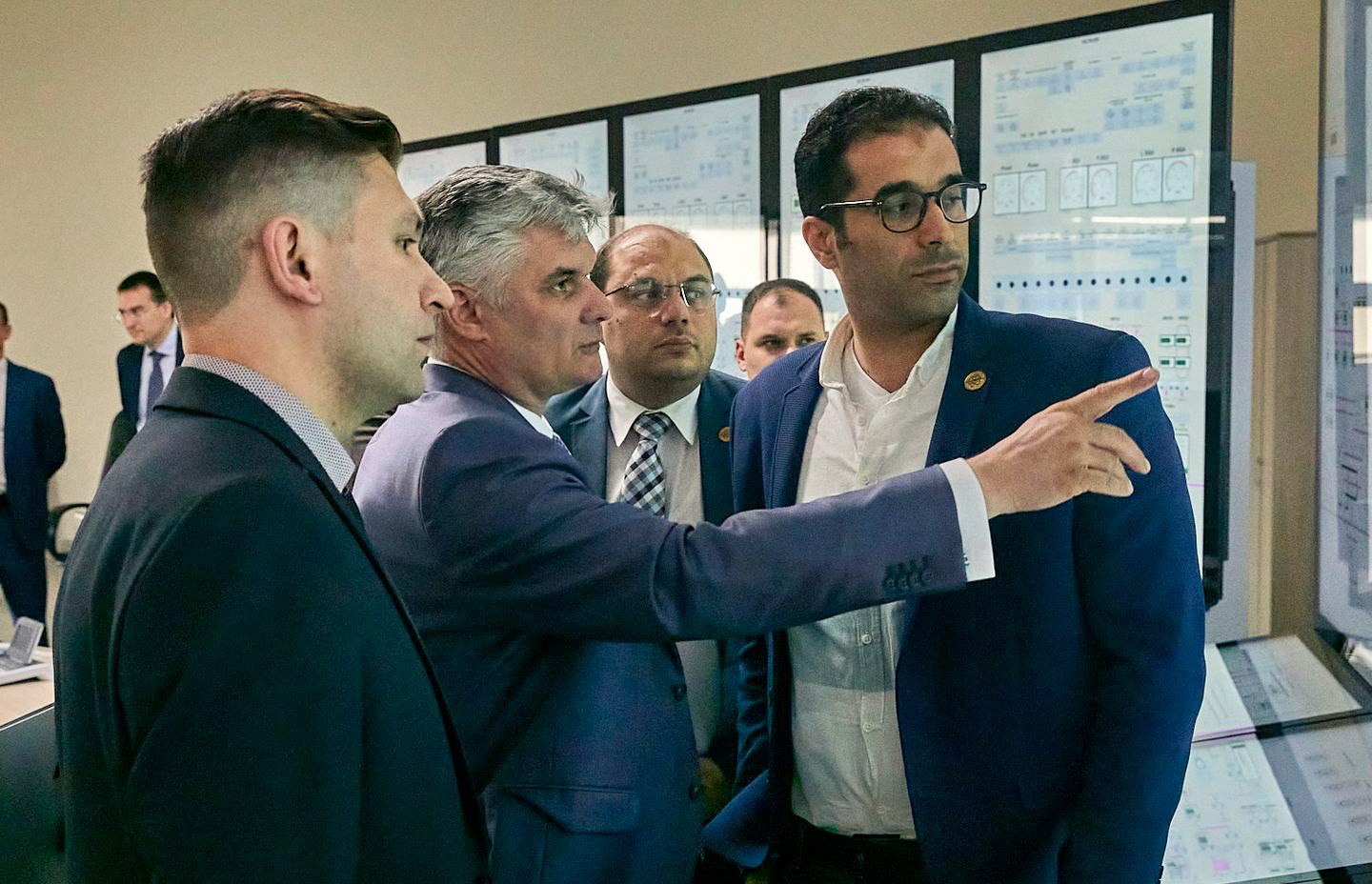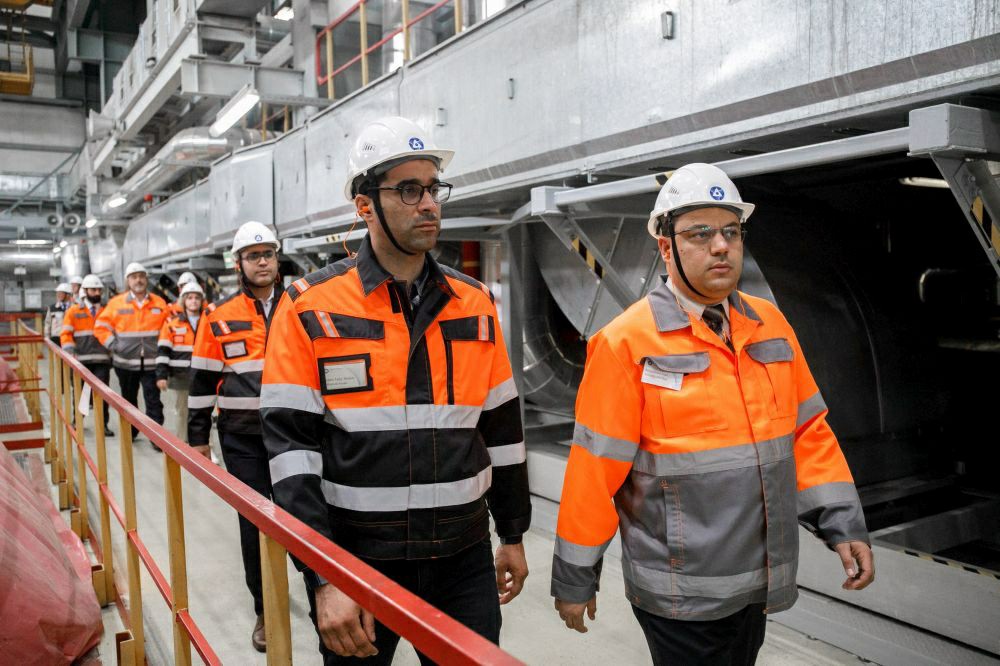
Russian-Egyptian Synergy
back to contentsMoscow and Cairo continue close collaboration on the first Egyptian nuclear power project. The construction of El Dabaa NPP is in full swing. On-site work is proceeding in parallel with the production of equipment for the nuclear power plant by Russian manufacturers.
In late June, the Central Design Bureau of Machine Engineering (CDBME, a part of Rosatom’s power engineering division AtomEnergoMash) began manufacturing a complete set of pumps for the nuclear and turbine islands of El Dabaa reactor units. In total, over 400 pumps will be supplied for the four reactors of the nuclear power plant. This will be CDBME’s largest-ever delivery of pumping equipment for a single site in terms of variety.
The delivery will include pumps for the nuclear and turbine islands, sprinkler system, cooldown system, chemical and volume control system, spent fuel pool cooling system, critical cooling pumps, deep well pumps, and more. This equipment will ensure safe and reliable operation of the nuclear power plant.
“The extensive experience and significant competencies of CDBME experts, along with our advanced production, technical, and testing facilities will enable us to fulfill this ambitious order for El Dabaa NPP. This will keep us busy until 2027 and help us expand the range of pumping equipment we manufacture,” says Kirill Krivosheev, First Deputy CEO and Sales Director at CDBME.
Additionally, the company is currently working to fulfill previously concluded contracts for the production of main circulation, main feeding and condensate pumps for the power units of El Dabaa NPP, and is preparing to finalize a contract for the supply of CDBME centrifugal pumps.
The Russian and Egyptian teams are closely collaborating. In late July, a delegation from Egypt’s Nuclear Power Plant Authority (NPPA) headed by El Dabaa construction project manager Mohammed Saed Dviddar visited Russia.
The Egyptian delegation visited the Novovoronezh NPP site. Vladimir Povarov, the nuclear power plant director, told the guests about the evolution of water-cooled water-moderated power reactors on the example of innovative Novovoronezh Unit 6, the world’s first power unit with the Generation III+ VVER‑1200 reactor. After that, the NPPA representatives were taken to the plant’s training station, where they were demonstrated the operation of a full-scale training simulator.
The delegation also visited Rosatom’s Technical Academy. During the meeting, the parties discussed the ongoing matters and inspected the living conditions, technical facilities and simulators at the Technical Academy.

“The construction of El Dabaa NPP is a megaproject that epitomizes cooperation between the peoples of Russia and Egypt. We are confident that working as one team will help us fulfill all the tasks because they are the same for each of us,” Mohammed Saed Dviddar said.
The head of the Egyptian delegation also took part in the Project Management and Responses to Challenges of New Times international forum. Mohammed Saed Dviddar and Olga Tolstunova, Vice President for Digitalization and Information Technologies at Rosatom’s engineering division, presented a joint report describing their experience in improving the efficiency of the El Dabaa project through the use of Rosatom’s digital technologies. In particular, they spoke about the experience of deploying the Multi-D Information Management System (IMS) for the Egyptian project. The Multi-D IMS integrates all project stakeholders into a single information environment by cross-linking and aggregating every piece of data entered into the system. The speakers also mentioned other Multi-D digital solutions that minimize the risks of information loss and distortion, control the configuration of every plant element throughout the service life of the nuclear facility and, most importantly, serve as a single source of truth for the nuclear construction project.
“When building complex engineering facilities, such as nuclear power plants consisting of tens of millions of elements, it is impossible to have an efficient management system in place without the use of digital technologies. To ensure efficient cooperation, the parties agree on the interaction rules, and the Multi-D IMS supports these rules and controls deviations. Today, the system has made it possible to take real-time management decisions based on actual data, thus improving business efficiency,” Mohammed Saed Dviddar stressed.
Engineers from Egypt’s El Dabaa NPP continue their training at the Leningrad Nuclear Power Plant, with a total of 90 individuals set to undertake a training course at the International Personnel Training Center this year. The first group of 16 people completed their training this spring. By 2027, approximately a thousand individuals, including general, operating and maintenance personnel from the Egyptian nuclear power plant will improve their skills at the Leningrad NPP. According to the instructors, Egyptian specialists have always demonstrated very good theoretical knowledge. Working as trainees next to Russian operators, they put theory into practice, learn about the operation of plant systems and dive into every nuance of the profession.
AtomStroyExport (ASE) is Rosatom’s engineering division and a global leader constructing most of the nuclear power plants abroad and having the world’s largest portfolio of nuclear construction contracts. The division is active in Europe, Middle East, North Africa, and Asia Pacific.
AtomEnergoMash (AEM) is Rosatom’s power engineering division and one of Russia’s largest power machinery producers providing comprehensive solutions in design, manufacture and supply of machinery and equipment for nuclear, thermal, petroleum, shipbuilding and steel-making industries.




